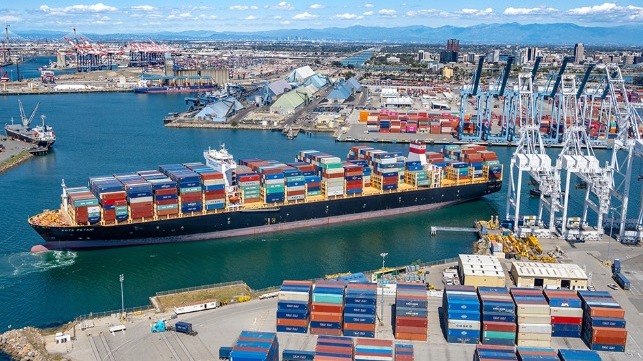Import Boom: Port of Long Beach Breaks Another Cargo Record

The Port of Long Beach continued its streak of cargo volume records in May by moving more than 900,000 TEU, marking - once again - the busiest month in its 110 years of operation.
The port's terminals handled more than 907,000 TEU, breaking the previous record - which was just set in March - by a margin about 67,000 TEU. Compared to May 2020, trade was up an astonishing 44 percent.
This jump was driven in large part by imports, which rose 42 percent year-on-year. The trade in empties is also thriving: ocean carriers moved 330,000 TEU worth of empty containers out of Long Beach over the month, up 80 percent relative to May 2020. Loaded export volumes barely grew, rising just 0.6 percent relative to last year.
The rapid pace of cargo movement was not a one-month anomaly. May was the 11th consecutive month that the port has broken TEU records for a specific month, and Long Beach has moved four million containers over the course of the first five months of 2021 alone - about 42 percent more than it moved during the same period in 2020, when the COVID-19 pandemic caused a wave of blanked sailings.

that matters most
Get the latest maritime news delivered to your inbox daily.
Consumer spending is driving a large share of the boom. E-commerce sales were higher in May compared to levels prior to the COVID-19 pandemic, the port said, and consumers continued to spend more money on goods rather than services. Demand is also up for lumber, appliances, and related goods due to a rise in housing sales and remodels.
"The economy and consumer spending have proven to be much more resilient than initially forecasted," said National Retail Federation president and CEO Matthew Shay in a statement Wednesday. "The combination of vaccine distribution, fiscal stimulus and private-sector ingenuity have put millions of Americans back to work. While there are downside risks related to worker shortages, an overheating economy, tax increases and over-regulation, overall households are healthier, and consumers are demonstrating their ability and willingness to spend."
